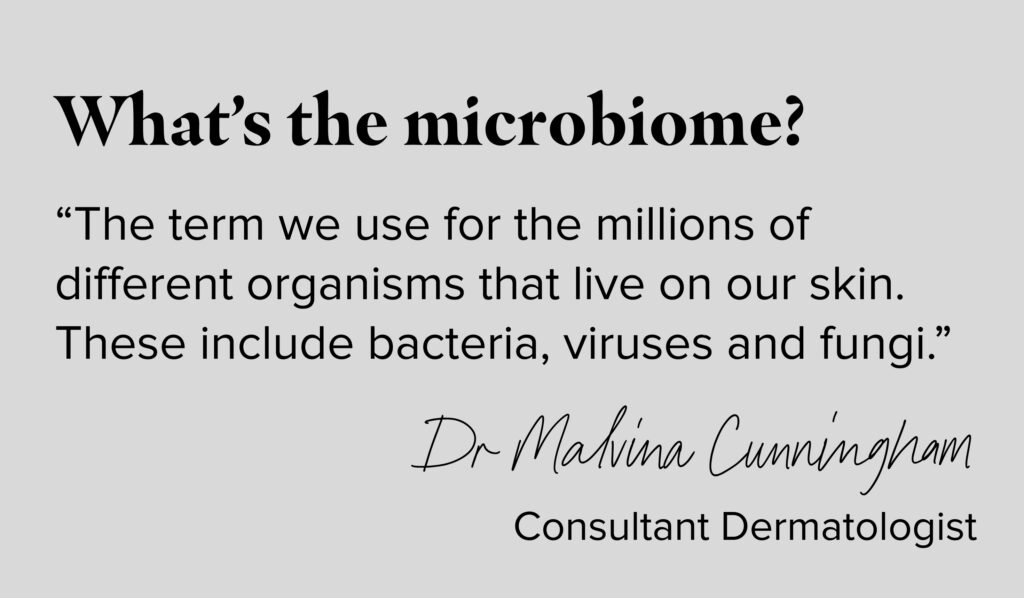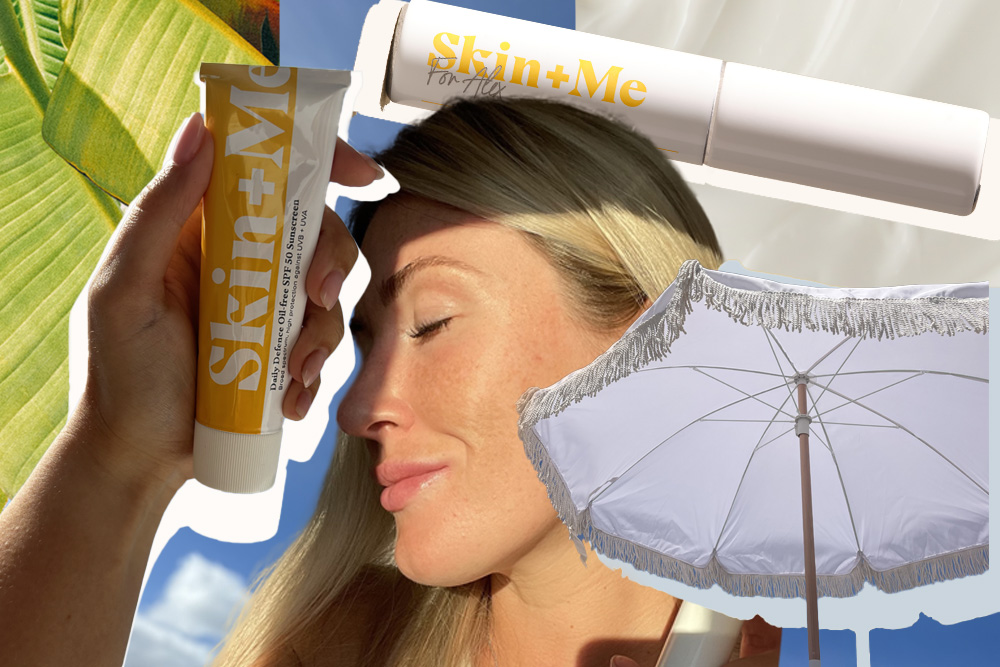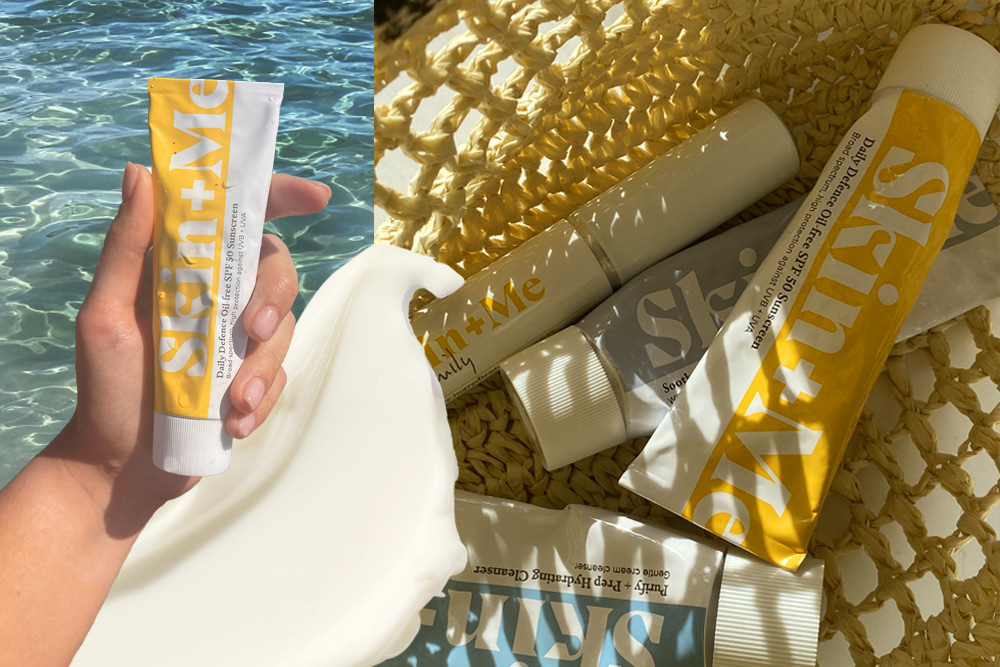Melasma 101

Link to share article here:
AI In Skincare: Should I Be Worried?
Most of you reading this article will be doing so from the supercomputer in your pocket, without giving it a second thought. That’s the way of the digital world in 2024. One minute you’re asking Alexa if it’s going to rain, the next, your Spotify playlist knows that ‘mellow pop manifesting Monday afternoon’ is exactly what you need to listen to on your commute home.
Many of us have embraced the digital revolution of the 2020s, specifically AI (artificial intelligence) and online algorithms. They play a significant role in our day-to-day lives, and it looks like skincare (and the wider beauty industry and the medical fields) will be the new frontier. However, it’s worth thinking about the pros and cons of tech in skincare, before we welcome it with open arms.
Read on to see how we could incorporate technology into our #shelfies, and what our expert Dermatology Team have to say about it.
How has technology impacted skincare so far?
From the early days of microscopes to the computerised devices used in most dermatology clinics, the digital revolution has transformed the skincare industry.
Invented around the turn of the 17th century, pioneers such as spectacle maker Zacharias Janssen, microbiologist Antonie van Leeuwenhoek and scientist Robert Hooke, created the earliest-known versions of the microscope, aiding the discovery of cells, which make up all plant and animal life.
The advent of the microscope bolstered physicians of the time to understand more about the skin. According to the Royal College of Physicians of Edinburgh, “Visualising technology was central to the establishment of this new specialty.”
Flashforward to the 21st century, and the ripples of these early-modern waves are still being felt. For example, Visia’s skin and complexion analysis tool, unveiled in 2019, uses digital imagery to gather different data points across the face to assess skin-health. Talk about standing on the shoulders of giants.
You might also be familiar with the ‘virtual try-on’ feature on makeup brands’ websites, showing you how their products could look on your skin, using ‘augmented reality’ (AR). AR superimposes digital images onto your view of the real world, resulting in a hybrid of authentic and computer-made imagery to help you make the best choices for you.
Other technologies such as laser resurfacing and LED treatments, which help with texture, rosacea and pigmentation concerns, are commonplace in aesthetic and dermatology clinics across the UK.
Let’s get digital
According to Encyclopedia Britannica, artificial intelligence (AI) is “the ability of a digital computer or computer-controlled robot to perform tasks commonly associated with intelligent beings”.
Even the idea of AI has been around for a while – fans of 2001: A Space Odyssey, we’re talking to you. As early as 1950, scientist and mathematician Alan Turing, labelled as the father of computer science, asked whether computers could think. He later developed the “Turing Test”, for humans to determine whether a computer or another human had responded to certain commands.
Now, the role of AI is growing quickly in the beauty space. There are multiple factors driving this forward, including consumer demand for personalisation, investment from businesses in AI-centred technologies, and growing trust in technology and access to information.
Brands of all sizes are integrating AI into their product and service offerings, finding ways to make them available to you from the comfort of your sofa. Companies like Skin Dossier use AI to assess and treat skin health – in their own words, their service “builds regimens with prescription and over-the-counter skincare, haircare, supplements, and med-spa treatments to optimise skin and hair health.”
Beauty conglomerate L’Oreal unveiled their contribution in 2020, with Perso, a device-in-development that claims to deliver “personalised on-the-spot skincare and cosmetic formulas.”
La Roche-Posay, the French cosmeceutical company, has their own skin analysis tool that utilises AI, and personal care behemoth Unilever has also jumped on the AI bandwagon, developing artificial intelligence and other digital technologies to understand the skin’s microbiome.
Dr Jason Thomson, Head of Medical at Skin + Me believes that the rise of AI is one of the biggest trends in skincare for 2024 and beyond. “Skincare brands have been adopting AI for a few years,” he explains, “in various ways from skin analysis algorithms to personalising skincare routines and even individual products.”
“We’ll see much more widespread adoption of AI, mainly by online skincare brands. We’ll see more of the big skincare brands leaning into AI and personalisation, and we’ll see more chat-style skincare quizzes that will dive deep into each individual’s specific problems and their skincare needs.”
“AI will be regularly used for analysing skin and providing product recommendations which will prove very useful and will help customers get the right product for their skin.”
However, despite the increasing level of personalisation via AI skincare, are we missing the human touch? As consumer research group Mintel puts it, “In a world increasingly dominated by algorithms, we will need human skills and emotion to make the most of this technological revolution.”
Should I be worried about AI in skincare?
It’s no secret, AI is an impressive development in the world of skincare, but there are still a few pitfalls. AI often makes headlines, both for its potential for good and its nefarious mis-uses. Even in the influencer space, AI has made an impact with ‘virtual influencers’ like Aitana Lopez, which raises the question of whether we are setting a new, and possibly unattainable beauty standard, particularly for women.
Additionally, as skin and dermatology are so closely linked with our personal health, it’s a good idea to think carefully and critically about how we use AI in our day-to-day lives.
It’s important to remember that AI needs to be trained. Despite connotations of sentient robots and concerns regarding whether cyborgs will replace humans in the future, AI still requires human input to help it work correctly and efficiently, and to fact-check the results it puts out.
OpenAI’s Chat GPT is an infamous version of a ‘large language model’, which is learning constantly, but only because of human use. The more we use AI, the smarter it will get, but it’s still a developing technology and it can still make mistakes.
According to Mintel, there is a way to balance the scales. “Artificial intelligence will transform the beauty industry by making it more personalised, efficient and effective, but governance and transparency will be critical to growth.”
So, where does skin come in? Dr Jason weighs in “I’d be cautious about trusting AI, and recommend sticking with an expert human.”
Doctors, nurses and pharmacists undergo years of formal, academic and practical training to understand the biochemical and physiological changes that skin undergoes, and can factor in genetic history, other medical conditions, lifestyle factors and skin changes.
“In a world increasingly dominated by algorithms, we will need human skills and emotion to make the most of this technological revolution.”
Mintel, 2024
Personalised skincare services like Skin + Me refrain from using AI to diagnose patients. Instead, highly trained Pharmacist Prescribers personally review every single consultation and assess high-quality photos submitted by customers to design individual treatment plans – no robots needed.
Skincare and viral trends
We’re big fans of TikTok here on The Dose, and we’ve seen first-hand the incredible virality of skincare trends on the platform: Remember gua sha? Slugging? Skin flooding?
TikTok, and other platforms like Instagram, use algorithms to determine what content you’ll see on your feed. This works by users (you) training the algorithm to understand and your likes and dislikes. It’s digital personalisation, and it’s not going anywhere anytime soon.
Digital-first trends means that anything (and anyone) can go viral in a matter of hours, the key is to think critically, and to always do your research. Seek out expert advice from profiles and publications you trust, whether that’s here on The Dose, or in the wider world.
Final thoughts
So, if you’re wondering whether you should be worried about AI in skincare? The answer, for now, is no.
Skincare is an ever-evolving field, and companies are always looking for the next big opportunity to deliver something new to their customers. The rise of AI in skincare can help to direct people towards a skincare routine that suits their skin, and it’s an exciting development in the industry.
However, real clinicians who have years of experience studying the science of skin are still leading the way in personalised skincare – you know you’re safe in the hands of genuine experts.
New to Skin + Me? Get your first month of personalised skincare for £4.99 with promo code DOSE – complete our quick consultation here.
Looking for a routine refresh? Add the Dream Routine to your Skin + Me subscription.
In need of a restock? Head to The Skincare Shop for one-off purchases of your Routine Essentials.
Disclaimer: Links in this article are to provide sources and further reading only. The Dose and Skin + Me are not responsible for third-party content. The author/s have not received commission, nor does this article contain affiliate links.




